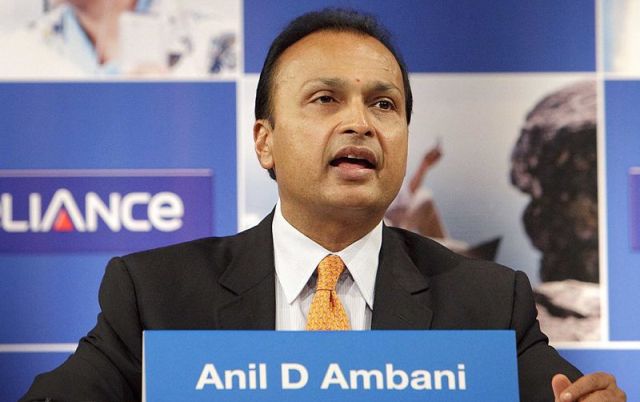 The future of Reliance Communications, which has a debt burden of $7 billion, is hanging in balance as the telecom operator formally indicated to TRAI about the closure of voice business and its focus on 4G data business.
The future of Reliance Communications, which has a debt burden of $7 billion, is hanging in balance as the telecom operator formally indicated to TRAI about the closure of voice business and its focus on 4G data business.
Reliance Communications will be stopping its voice business, which offers nearly 80 percent of its revenue, on 2G networks in all its telecom circles. BSNL, Vodafone, Idea Cellular and Bharti Airtel are targeting the 2G customer base of Reliance Communications through porting (MNP).
Reliance Communications on 31 October 2017 told TRAI that it will stop voice services and provide only 4G data services in eight circles including Andhra Pradesh, Haryana, Maharashtra, UP (East), UP (West), Tamil Nadu (including Chennai), Karnataka and Kerala from 1 December, 2017. Reliance Communications did not mention about the possibilities of offering VoLTE.
Reliance Communications will be shutting down CDMA services offered by MTS in Delhi, Rajasthan, UP (West), Tamil Nadu, Kerala, Karnataka, West Bengal, Gujarat and Kolkata and will be upgrading the network from CDMA to LTE.
Action plan
Reliance Communications, as part of its plan to restructure its $7 billion debt, plans to convert debt of INR70 billion into equity, sell spectrum, tower and fibre assets for INR170 billion, and sell real estate of INR100 billion.
Reliance Communications, which stopped payments to several tech vendors, owns about 125 acres of land in Dhirubhai Ambani Knowledge city (DAKC), in Mumbai, India and other real estate assets across eight cities in India.
Reliance Communications plans to monetise spectrum assets in the 800MHz, 900MHz, 1800MHz and 2100MHz bands by sharing and trading with other Indian telecoms, most likely Reliance Jio.
Reliance Communications also owns 43,000 telecom towers and 178,000 route km of inter- and intra-city fibre optic cables.
Reliance Communications’ lenders will convert INR70 billion of debt into equity and will invite a strategic investor to inject equity before the end of 2017 and manage the remaining business.
Financial lenders are expected to take more than 51 percent equity stake in Reliance Communications from the Anil Dhirubhai Ambani Group (ADAG). ADAG group will retain about 26 percent of shareholding after the debt restructuring.
Fitch Ratings recently said Reliance Communications will exit from the wireless voice business and significantly scale down its operations due to intense competition. The exit from voice business will further deteriorate the financials of the telecom operator which was conceived by the late Dhirubhai Ambani, the father of Mukesh Ambani and Anil Ambani.
 Reliance Communications said its plan to sell 51 percent stake in its tower operation to Canadian pension fund Brookefield for INR110 billion may now fetch lower value because it plans to shrink its wireless business and the absence of merger with Aircel.
Reliance Communications said its plan to sell 51 percent stake in its tower operation to Canadian pension fund Brookefield for INR110 billion may now fetch lower value because it plans to shrink its wireless business and the absence of merger with Aircel.
Will data model survive?
Reliance Communications wants to focus on data business and expects that it can get a strategic partner. Reliance Jio, which has invested $25 billion in its India telecom business, focused on data along with offering free voice services (VoLTE) to attract customers.
Without a growing voice business, the future of Reliance Communications will be bleak because voice is still the lifeline for all telecoms including Bharti Airtel, Idea Cellular, Vodafone and BSNL. Bharti Airtel, despite its strong presence in India, could not grab the first 100 million data users on its 2G, 3G and 4G networks.
Reliance Jio is the first Indian telecom operator to cross 100 million data subscriber base thanks to its low price model along with freebies.
Reliance Communications needs a strong partner to revive the debt ridden telecom operations in order to survive. In the wake of the ongoing consolidation, Reliance Communications will not get an active business investor to revive and rebuild the company.
In the recent past, telecom operators such as Videocon Telecom, MTS, Aircel, Telenor India and Tata Docomo did not get any foreign strategic partner because of the less attractive telecom business in India. The less than $3 ARPU and the need for huge investment in ensuring best quality phone services discourage foreign investors staying away from India.
Dominating telecom operators such as Airtel, Reliance Jio and Idea Cellular-Vodafone will not buy telecom assets that come with huge debt. Sunil Mittal, the promoter of Airtel, has done well in the merger and acquisition (M&A) market because he did not absorb any debt when Airtel acquired assets from Videocon, Aircel, Tikona, Telenor India and Tata Docomo.
The $7 billion debt and low ARPU customers, who have already started moving away from the RCOM brand, are becoming less attractive for any investor because they want quick returns. Anil Ambani, the promoter of Reliance Communications, has not shared any strong revival plan for the telecom operator though he acquired MTS and tried to close the deal with Aircel.
Baburajan K
